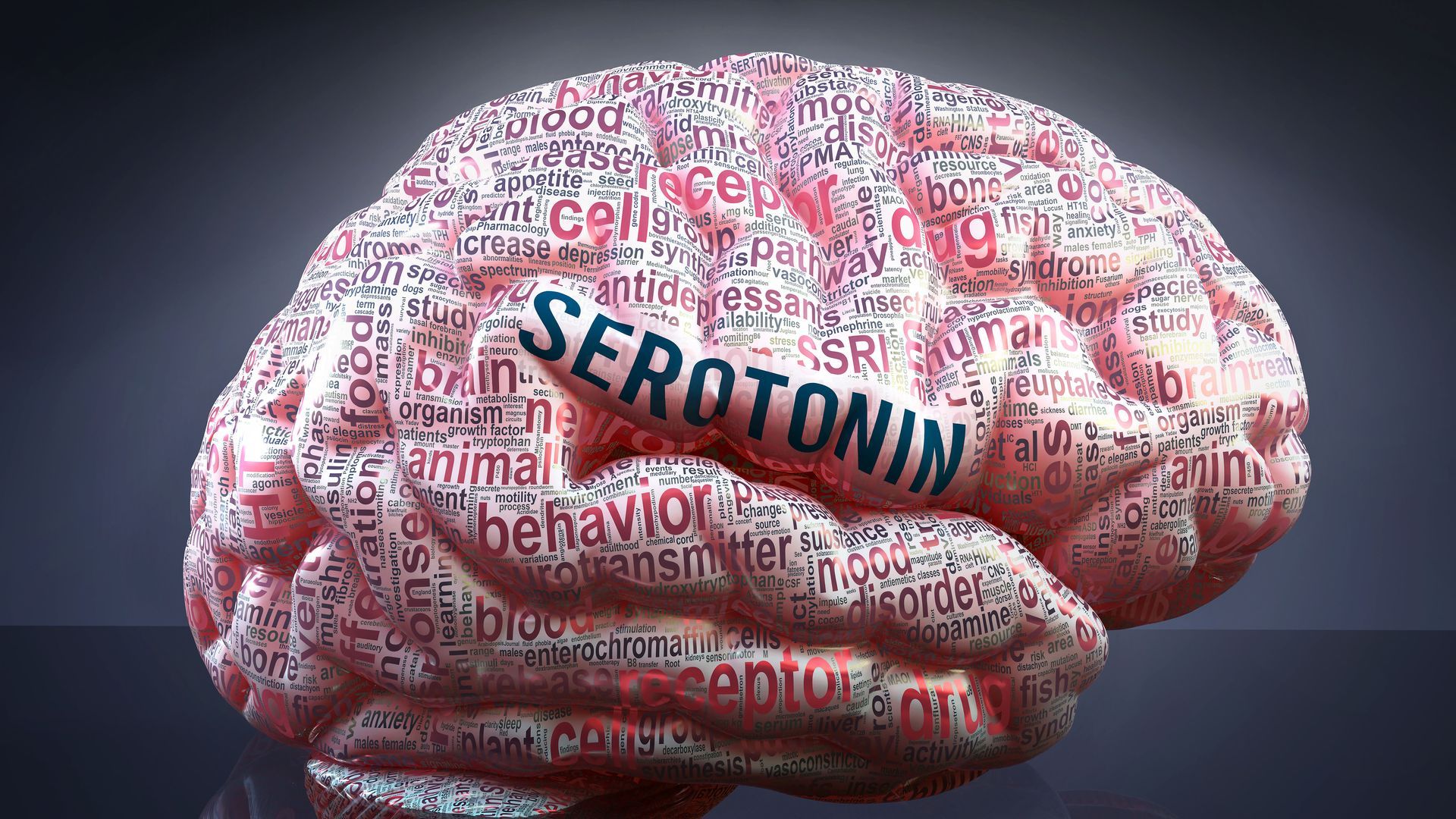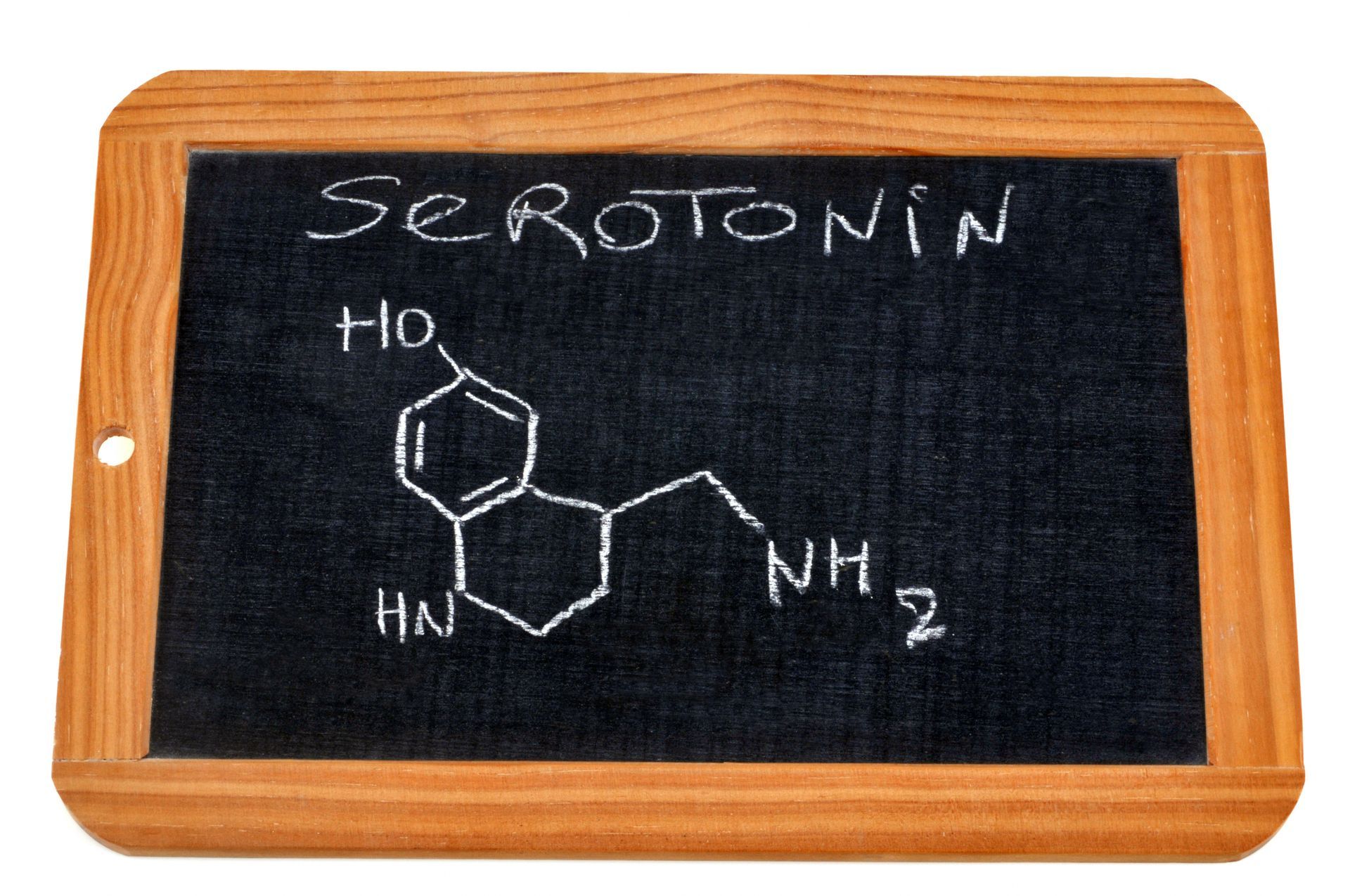Serotonin Syndrome
What is Serotonin Syndrome?

Symptoms of Serotonin Syndrome
The following symptoms represent the classic "toxidrome" for serotonin toxicity. However, not all of these may be present, especially in mild cases, which further complicates making this diagnosis.
If your child/teen has only 1 symptom, it is extremely unlikely to be serotonin syndrome!!
If you suspect that your child/teen has serotonin syndrome, they need to be seen immediately at an emergency department!
**Because many physicians may think that the symptoms are due to an infectious cause***, not a toxicity, and there is NO test to diagnose it, It is crucial to inform the ED physician as soon as possible about your concerns!!!
===Do not stop any prescribed medication without contacting the physician who prescribed it!!!
- Tachycardia (Fast heart rate)
- Elevated blood pressure
- Involuntary muscle tremors, more commonly in the legs
- Muscle Rigidity (stiffness) more common in the legs
- Sweating
- Shivering (fine, fast muscle tremors in the entire body)
- Dilated (large) pupils
- Agitation or confusion (may require sedation)
- Delirium (an extreme form of confusion--not aware of present surroundings or able to speak clearly, may hallucinate)
- Seizures
- Hyperthermia (high temperature at least 101*F, but more often >104*F)***
***This is the reason why these symptoms are so often mistaken for an infection with a "fever", instead of a toxicity. A "fever", which is by far much more common than hyperthermia from any cause, is the result of inflammation or an infection temporarily making the brain raise the body's temperature, sometimes as high as 106*F, especially with viral infections in kids. These temperatures are not harmful to the body and they DO NOT CAUSE BRAIN DAMAGE!! Fevers are treated with antipyretics for comfort.
HYPERTHERMIA, however, is caused by the muscle stiffness, tremors, or seizures that generate excessive heat in the body, which the brain cannot control. It also cannot be controlled with antipyretics such as acetaminophen (tylenol) or ibuprofen (Advil/Motrin). Since the brain is not controlling the body temperature, hyperthermia will lead to brain damage, muscle breakdown, and resulting renal (kidney) failure. (A temperature that would barely be considered a "fever" (101*F) can be fatal with hyperthermia!!)
Serotonin syndrome is a rare form of toxicity that occurs due to an excess of this neurotransmitter ("messenger" chemical in the brain and other parts of the body). This "toxidrome" (a specific pattern of symptoms that characterizes the toxicity from a substance with a certain action in the body) can range from mild to very severe and potentially life-threatening. However, it is worth mentioning again that Serotonin Syndrome is RARE. It is also important that parents, guardians, and older kids and teens are aware of this condition because there are NO tests that can diagnosis it! It has to be suspected based on the history of developing the symptoms within 1 day of:
(a) starting a new medication, (b) a change in the dose of an existing medication, (c) the addition of another medication or substance that also acts to increase the levels of serotonin in the central nervous system (brain and spinal cord), or (d) the addition of a medication or substance that indirectly increases serotonin levels by preventing the metabolism (breakdown) of an existing medication which does directly increase serotonin levels. It is likely that, in the majority of cases of serotonin syndrome, especially when the symptoms are mild, adjustments to prescribed medications are the cause of one of the above mechanisms. However, when these mediations and/or substances are ingested in an intentional overdose, the symptoms tend to be much more severe (requiring monitoring in an intensive care unit) or fatal.
(see list of medications and substances below, that may cause serotonin syndrome by one of the mechanisms noted above).
To understand the symptoms of excess serotonin, it is important to understand the basic functions of serotonin and how it is regulated. The neurotransmitter, serotonin, is released from one cell (presynaptic) in response to some type of stimulus, then it crosses a gap (synapse) and attaches to a receptor (think of it like a boat dock) on the 2nd cell (postsynaptic). This is where it causes its effects on whatever organ where these cells are located. In the brain, serotonin regulates attention, mood, behavior, and the regulation of normal body temperature. However, only 2% of the body's serotonin receptors are found in the brain! The overwhelming majority of serotonin receptors are located in the gastrointestinal (GI) tract (a whopping 90%!)--
No wonder the most common (temporary) side effects of the SSRIs and SNRIs are GI-related--Nausea, vomiting, and diarrhea! The other 8% are located in the platelets, the particles in the blood responsible for clotting.
--See the box at the bottom for the symptoms of serotonin syndrome--
How Is Serotonin Syndrome Treated?
If Serotonin Syndrome is diagnosed by a detailed history revealing the onset of symptoms within 6-24 hours following one of the mechanisms above that cause increased serotonin levels, these symptoms also usually resolve just as fast after the medications or substances are discontinued. In some cases, with certain SSRIs (Selective Serotonin Reuptake Inhibitors) that remain active in the body for up to 2 weeks after they are discontinued (most commonly, fluoxetine/Prozac), the symptoms from serotonin syndrome will also take about 2 weeks to resolve.
The frequency of serotonin syndrome cannot be accurately measured, since the majority of these cases are very mild and usually either do not present to an emergency department, or they are most likely to be misdiagnosed as something else. The mild cases do not require any treatment, except discontinuing the offending medications/substances and reassessing their benefits and doses.
For more severe cases, the treatment is still mostly supportive. Sedation is used to treat agitation and the muscle tremors, resulting also in lowered body temperature. Intravenous fluids also help with dehydration and can flush the muscle breakdown products rapidly out of the kidneys to prevent kidney failure. If there are abnormal and fluctuating heart rates and blood pressure measurements, hospitalization occurs with admission to the intensive care unit. Ultimately, these are all supportive measures to stabilize the person until the discontinuation of the medications/substances causes the symptoms to spontaneously resolve.

Examples of Meds & Substances Increasing Serotonin Levels

SSRIs (Selective Serotonin Reuptake Inhibitors)= Sertraline (zoloft), Fluoxetine (prozac), Citalopram (Celexa), Escitalopram (Lexapro), etc.
SNRIs (Serotonin Norepinephrine Reuptake Inhibitors)= Duloxetine (Cymbalta), Venlafaxine (Effexor), and Desvenlafaxine (Pristiq)
Antidepressants = Mirtazapine (Remeron), Trazodone,
Antidepressants,/ Misc = Lithium, MAO-I Inhibitors (not used commonly)
Anti-anxiety = Buspirone (Buspar)
Mood Stabilizers (Atypical Antipsychotics)= Aripiprazole (Abilify), Risperidone (Risperdal), Ziprasidone (Geodon), Quetiapine (Seroquel), etc
Combined Antinausea & Treatment of Mania= Chlorpromazine (Thorazine)
Opiates (Narcotic pain medications)= Hydrocodone (Vicodin), Codeine, Morphine, Oxycodone (Percocet and Oxycontin), etc
Illicit Substances = LSD, Cocaine, Ecstasy (MDMA)
Migraine Medications/ Triptans (Migraine Abortives)= Sumatriptan (Imitrex), Zolmitriptan (Zomig), etc. (Also includes Ergot Derivatives ie Ergotamine, but these are not used often, if at all, due to more severe side effects and drug interactions than Triptans)
Some Newer Antibiotics = Linezolid
Amino Acid in Foods = Tryptophan (found in a lot of different foods, including eggs, dairy products, animal proteins, quinoa, soy, nuts and seeds, some veggies, etc etc)
Herbals & Supplements = St. John's Wort, Syrian Rue

